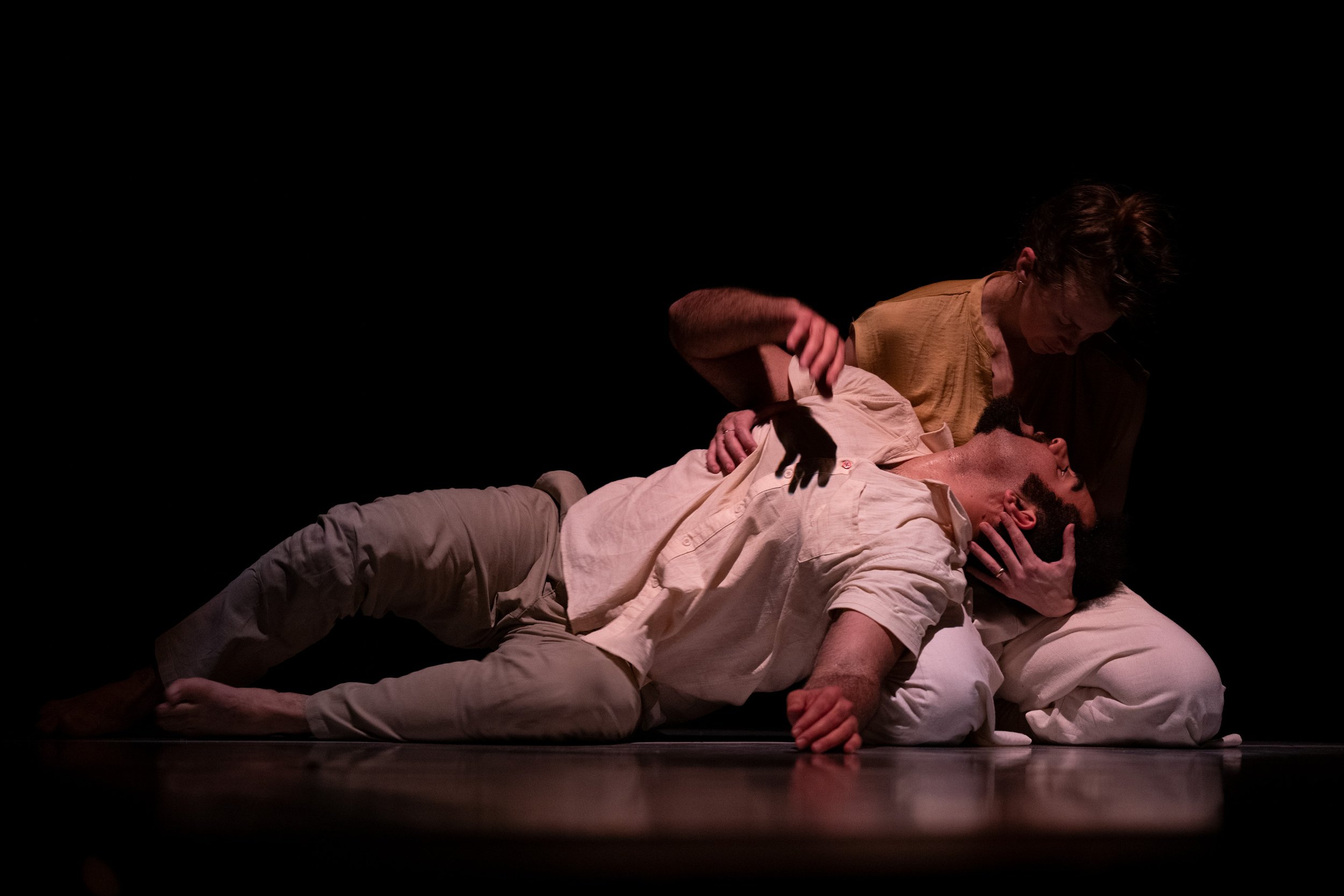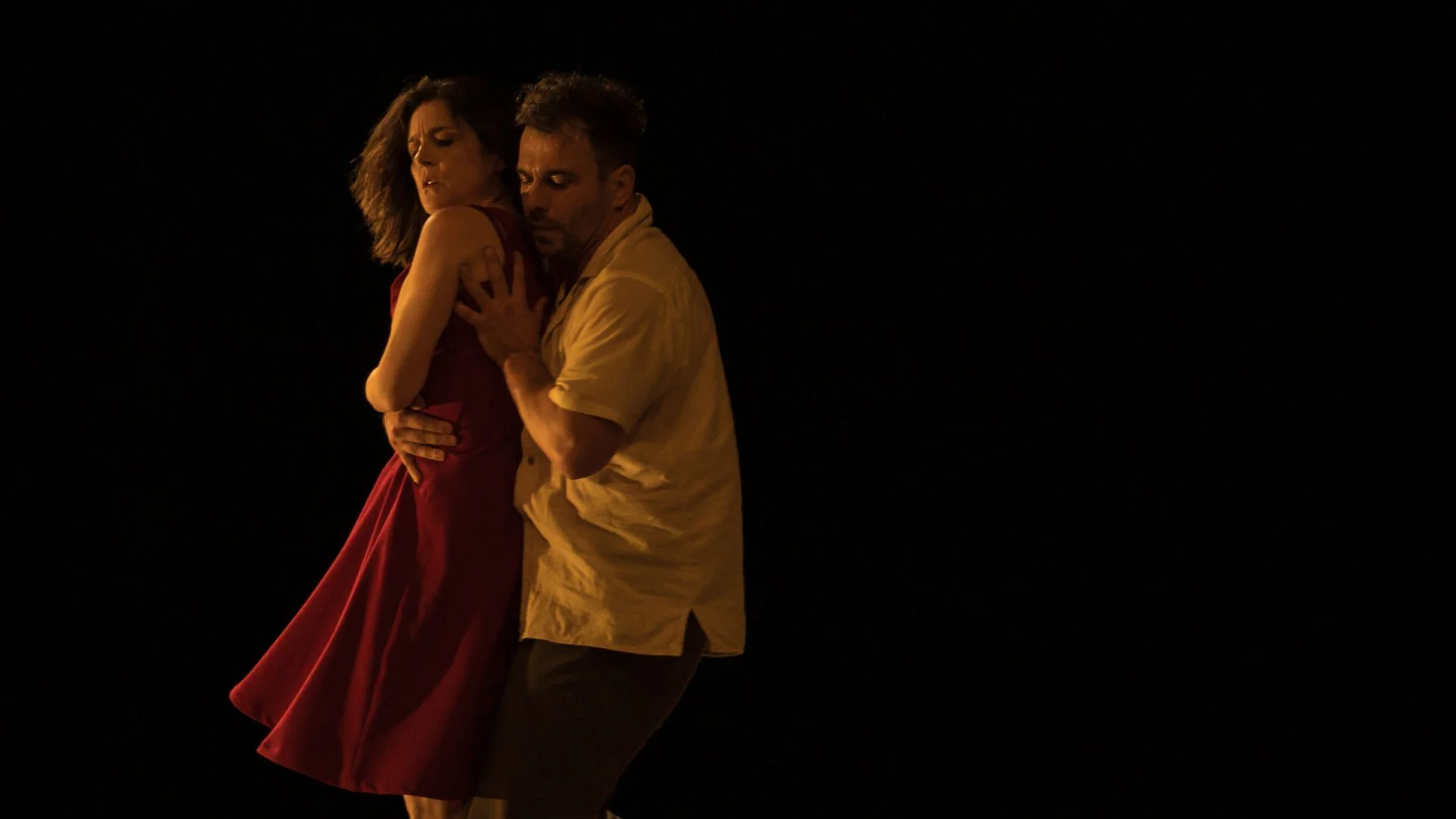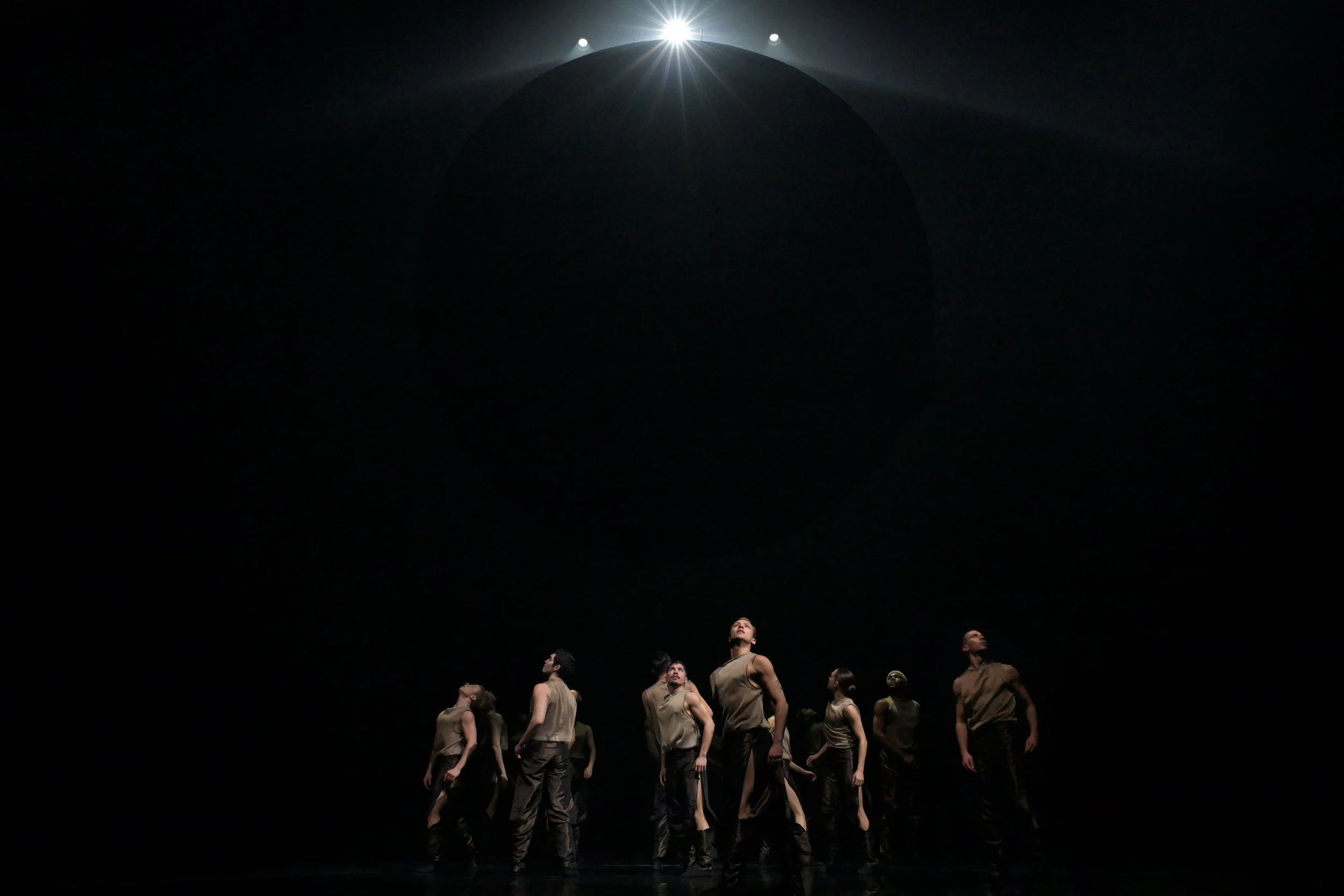Dance review: Persian poetry drives intense cross-cultural Chutzpah Festival offering
Alexis Fletcher and Arash Khakpour make a compelling duo, as All my being is a dark verse builds an atmospheric visual world
All My Being Is a Dark Verse. Photo by David Cooper
The Chutzpah Festival presents همه هستی من آیه تاریکیست | All my being is a dark verse at the Norman and Annette Rothstein Theatre to November 10
HOW INSPIRING AND refreshing, in such a divided world, to hear the musical lilt of Farsi echoing through the lobby of the Jewish Community Centre, and into the aisles of the Norman and Annette Rothstein Theatre, this week as crowds arrived at the Chutzpah Festival.
The 2022 rendition of the multidisciplinary fest interweaves a Persian theme, inspired, artistic director Jessica Mann Gutteridge revealed in a preshow speech Wednesday night, by Alexis Fletcher and Arash Khakpour’s collaborative dance work همه هستی من آیه تاریکیست | All my being is a dark verse. The celebration of Jewish culture is asserting art as a form of bridge-building, and the Persian theme will carry through to food and music as the fest progresses.
The show opened with a brief monologue performance by Persian theatre artist Panthea Vatandoost (curated by Chutzpah’s The Flame storytelling series). Dressed in a Valentine’s-red gown, her heart-felt confessional explored the pain and pleasure of love in ways that served as a perfect entrée to the themes of the dance piece, which is inspired by tormented love poetry of Persia’s late icon Forugh Farrokhzad.
The fearless Farrokhzad, who died at only 32 in a car accident in 1967, shared her innermost emotions, anguish, secrets, sorrows, and erotic desires through poetry—putting her at the centre of controversy in the patriarchal society that she felt so smothered by. A committed Fletcher and Persian-Canadian Khakpour try to tap directly and unflinchingly into that unrelenting intensity and intimacy.
From the outset, there are two big strengths to this ambitious, extended pas de deux.
The first is the simple, exciting pairing of the two dancers—Fletcher, with her honed balletic training and deep emotional expressivity, Khakpour with his contact-improv background, and the kind of impressive, big physicality that allows him to throw himself on the floor and bounce back up in ways that defy the laws of physics. Perhaps she brings out his emotional intensity as they partner—often with their gazes locked powerfully; he might bring out more raw physicality in her movement.
The second is the dreamlike visual world (created meticulously by Sylvain Senez, working in tandem with lighting designer Victoria Bell). A gorgeous, gigantic “chandelier” of 14 upside-down vintage lamps almost becomes another character in the work, sometimes bathing the dancers in its warm, embracing glow. Along with suspended open poetry books and a standup light that seems to float and twirl midair, it gives everything a heightened, hallucinatory feel that fits with Farrokhzad’s free-associative imagery.
The movement can be rough, wracking, and unforgiving as it explores the pain and pleasures of love. At one point, Fletcher drags Khakpour around the floor, squeezing his head between her feet as she crawls and slides. At another, she slaps his face over and over. At still another moment, they convulse under the lowered lamp fixtures, like their lovesick bodies are being strafed by invisible bullets and hit with repeated shocks. That’s contrasted with the moments of pure intimacy, her cradling his head in her hands, or letting him bury his face in her stomach. One of the choreographic highlights is a loose, flailing sequence of partnering that flies fluidly around the floor; it’s a kind of embodiment of freedom and abandonment in forbidden love, something the oppressed Farrokhzad yearned for.
The last quarter of the piece takes a trip into more surreal, elusive conceptual territory; the pair gorge themselves on a pomegranate, dig into a lampshade full of dirt, and hang perilously over the side of the stage.
Read those moments how you will; Farrokhzad has definitely awoken a kind of courage in these artists to throw it all out there. Similarly, the audience likely left the theatre wanting to tap more into this beacon of female strength in Iran.














